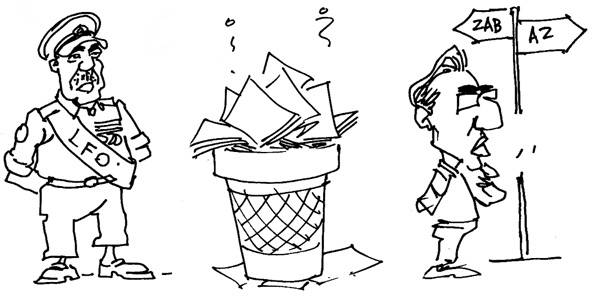
Fall of Dhaka – I
Sir,
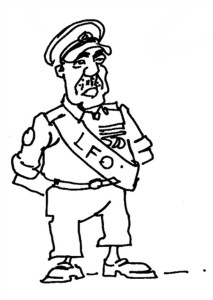 December marks the anniversary of the fall of Dhaka in 1971. Every year, there is debate in the press on the reasons behind the debacle, but one thing no one talks about is that according to the Legal Framework Order (the basis of the general elections that were won by the Awami League), President Yahya Khan had the authority to reject the constitution made by the constituent assembly within 90 days of its passing by a simple majority. The Awami League could have had its way, but if Yahya Khan would reject the first draft, it would be sent back to the assembly and would have to be passed by a 2/3 majority. Yahya could still send it back if he were not satisfied with it, and then the assembly would have to pass the legislation with a 3/4 majority. By then, it wouldn’t even remotely resemble the original draft passed by the Awami League majority.
December marks the anniversary of the fall of Dhaka in 1971. Every year, there is debate in the press on the reasons behind the debacle, but one thing no one talks about is that according to the Legal Framework Order (the basis of the general elections that were won by the Awami League), President Yahya Khan had the authority to reject the constitution made by the constituent assembly within 90 days of its passing by a simple majority. The Awami League could have had its way, but if Yahya Khan would reject the first draft, it would be sent back to the assembly and would have to be passed by a 2/3 majority. Yahya could still send it back if he were not satisfied with it, and then the assembly would have to pass the legislation with a 3/4 majority. By then, it wouldn’t even remotely resemble the original draft passed by the Awami League majority.This makes me wonder who really caused the breaking up of Pakistan.
Javed H,
New York.
Fall of Dhaka – II
Sir,
I had made up my mind never to speak about the debacle in the former East Pakistan even though I lived there as a child and became a prisoner of war after the fall of Dhaka.
I was acting at the time as the staff operations officer at the Eastern Air Command. My intention is not to comment on the operation. I would rather like to quote an incident that happened to me in the fall of 1970.
I was to take an exam, then known as “Q” exam, to qualify for the coveted Staff College of the Air Force. The most important part of the exam used to be the Current Affairs section. The section had only one essay topic, if I recall correctly, and that was the prevalent situation in East Pakistan and what could be the ultimate outcome if the situation was not handled correctly.
My family and I had a very long association with undivided Bengal. I mentioned in the paper that the Bengali nation was highly political and did not tolerate oppressive rulers for too long. I had drawn attention to the popular governments formed by Molvi Fazlul Haque, Khawja Nazimuddin and Shaheed Saharwardi and how they ended. Fazlul Haque was called “Sher-e-Bangla”, but he was brought down when people felt betrayed. I also mentioned the arrival of East Pakistani MNAs at Chaklala Airport after the Basic Democracy elections by Field Marshall Ayub Khan. They all said that they were together and fully behind Mr Abdul Qadir, and the reporters should talk to him about what cause they supported. But after the first session of the assembly, there were as many voices as MNAs from then East Pakistan. In the end, I concluded that if the regime did not realize the gravity of the situation and did not give the power to Sheikh Mujib, the country would fall apart. If Mujib was given the power he had won, cracks would soon appear in the Awami League that would cripple the party.
I was reprimanded by the commandant of Staff College for calling the legitimate government of Pakistan a “regime”. I was also reminded that I did not comprehend the situation in the least and that the Bengal of 1940s was quite different from East Pakistan. Giving power to a known separatist would be a disaster.
It is not a regular practice at the college to write to failing students, but they said my use of the word regime, my discussion on the population parity, and my statements about the conspiracy against East Pakistan needed to be responded to. If not admonished, I could be a source of demoralization to others, I was told.
M Viqar,
Lahore.
Fall of Dhaka - III
Sir,
Pakistan came into being because the plan for the confederation of three Indian regions was not implemented.
This political structure was proposed by the British as the solution to the critical problems of the region facing extraordinary divisions that had religious, linguistic and economic dimensions.
Later on, Bangladesh came into being because the plan for the confederation of two Pakistani regions was not implemented. This political structure was demanded by the Bengalis as the solution to the critical problems of the country facing extraordinary divisions that had geographical, linguistic and economic dimensions.
The aim of both these separation movements was the independence of territorial communities which were deeply apprehensive about their future, because of grim ground realities.
Taraq Jazy,
Islamabad.
Blind justice
Sir,
 I am surprised at the logic and arguments put forward by some within the media and political parties who are critical of the federal government’s constitutional obligation to file charges of treason against former military dictator Pervez Musharraf for his November 2007 act.
I am surprised at the logic and arguments put forward by some within the media and political parties who are critical of the federal government’s constitutional obligation to file charges of treason against former military dictator Pervez Musharraf for his November 2007 act.Especially surprising are the arguments of PPP and their coalition partners, who ruled this country for over five years, or those who claim that this trial would be a trial of the armed forces and not just Musharraf. What they forget is that institutions are more important than individuals, and the process of accountability within them strengthens them rather than weakening them.
For their information, when US President Barack Obama sought the resignation of CIA director Gen David Petraeus in November 2012 over an extramarital affair, it was not considered to be tarnishing the image of the CIA. Nor was the withdrawal of Gen John Allen, nominated NATO commander in Afghanistan, involved in the same scandal.
May I remind these critics that Alphonse Al Capone, accused of murdering, smuggling, prostitution, and other illegal activities, was eventually put on trial for tax evasion in 1931, because in opinion of Prosecutor Frank, conviction was more likely than on other more heinous charges, since witnesses were hesitant to come forward for fear of their lives.
The PML-N government can and should be criticized for its numerous failures, but this is certainly not one of them.
Ali Malik,
Lahore.
Blood and water
Sir,
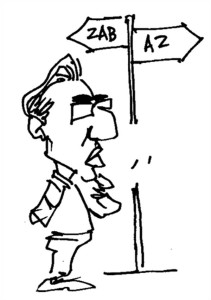 Pakistan People’s Party was founded at the former residence of Dr Mubashir Hassan in Lahore. Its founding members included Rasool Bukhsh Talpur, JA Rahim, Mumtaz Bhutto, and Sheikh Rasheed, who worked under the dynamic leadership of Zulfikar Ali Bhutto.
Pakistan People’s Party was founded at the former residence of Dr Mubashir Hassan in Lahore. Its founding members included Rasool Bukhsh Talpur, JA Rahim, Mumtaz Bhutto, and Sheikh Rasheed, who worked under the dynamic leadership of Zulfikar Ali Bhutto.As long as the PPP followed the legacy of Bhutto in letter and spirit, it lived in the hearts and minds of the people of Pakistan. It is tragic that after Benazir Bhutto was assassinated, Asif Zardari inherited the party leadership and reduced this federal party to a regional one, shrouded in controversies of corruption, scams, cronyism and abuses of power.
For five years, Zardari ruled the country with all the power to implement his policies. He not only failed the aspirations of the people who always voted for this party, but betrayed the vision of its founding members, and made no serious attempt to bring to justice Benazir’s murderers.
Young Bilawal is now entering politics. He has to make a very clear choice between the legacy of Zulfikar Ali Bhutto or Asif Zardari.
Enough water and blood has flown down the river Indus, and over the land it irrigates.
Aneela Chandio,
Sukkur.
The real threat to Islam
Sir,
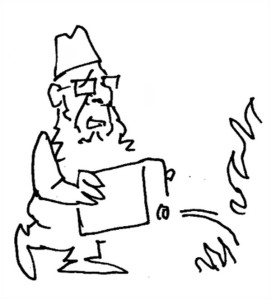 Some acts and statements of religious leaders of Pakistan have provided fodder to their rivals, and led to disdain for those who align themselves with any religious outfits or ideology.
Some acts and statements of religious leaders of Pakistan have provided fodder to their rivals, and led to disdain for those who align themselves with any religious outfits or ideology.For instance, an acrimonious controversy triggered by the statement of Jamaat-e-Islami chief Syed Munawar Hassan added fuel to the fire of terrorism. It literally pitched the armed forces and the JI against each other.
Similarly, last month, the infamous Mudaraba scandal, in which very prominent prayer leaders and muftis associated with the Tablighi Jamaat (which otherwise is a respectful organization and has a huge following) were involved, has further daubed the face of Islamic leaders.
Frankly, the common man has started doubting almost every man with a beard and with a religious link. People at large are sometimes even scared to offer prayers in the mosque – a harsh fact we must acknowledge.
It is a huge responsibility, perhaps the heaviest at least in the recent history, for the Islamic leadership to revive their image. Otherwise, the differences between mullahs, beards, mosques, and militants are being seen as becoming increasingly blurred.
Zafar Sultan,
Islamabad.
Bitter truth
Sir,
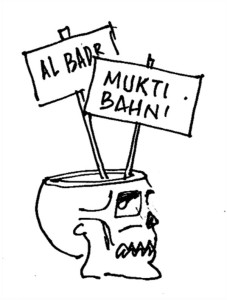 There is no denying the fact that in 1971, atrocities of the worst kind were committed in what was then known as East Pakistan.
There is no denying the fact that in 1971, atrocities of the worst kind were committed in what was then known as East Pakistan.From day one, Bengali citizens of the country were not treated as equal. That is a bitter historical truth. Pakistani leaders, intellectuals, and civil society representatives have directly or indirectly apologized in one way or the other at various forums for the genocide, rape and murder that took place in 1971.
The Jamaat-e-Islami was helping the armed forces of Pakistan to keep the two wings of the country united. Organizations called Al Badar and Al Shams were created by the government of Pakistan in collaboration with Jamaat-e-Islami. In that struggle, they did lose sense, and atrocities such as rape, genocide and murder did take place. But the same way, murder, rape and genocide were also carried out by the Mukti Bahini, the militant group of the Awami League trained and supported by the Indian armed forces.
If it was fair to execute Jamaat-e-Islami Bangladesh chief Abdul Quader Molla on the charges of rape, then thousands of Mukti Bahini men should also be tried and executed for the same crime.
Yasmin Saika, in her book Women, War and the Making of Bangladesh states after detailed research that “Men representing the armies of Pakistan and India, as well as the Mukti Bahini and pro-Pakistani Bengali and Bihari civilians who volunteered in the auxiliary armed forces of Al-Badr and Al-Shams raped, looted, killed, and terrorized noncombatants in East Pakistan.”
Saika is not the only independent historian who has narrated these miserable and unbelievable stories of insanity. There are others as well.
Even today, thousands of Biharis are living in subhuman conditions in camps in Bangladesh. “The ethnic war transformed the Biharis from citizens into stateless refugees and gender violence destroyed the very fabric of society creating multiple marginal communities of absent subjects in post liberated Bangladesh.”
Aamir Aqil,
Lahore.
Promises
Sir,
 Pakistan celebrates the birth anniversary of its founder Muhammad Ali Jinnah every December, but 66 years after Pakistan came into being, his dream is still unfulfilled.
Pakistan celebrates the birth anniversary of its founder Muhammad Ali Jinnah every December, but 66 years after Pakistan came into being, his dream is still unfulfilled.While addressing first Constituent Assembly of Pakistan on 11th August, he said: “No matter what is his color, caste or creed, (a Pakistani) is first, second and last a citizen of this state, with equal rights, privileges and obligations.”
“The first duty of a government is to maintain law and order,” he said, “so that life, property and religious beliefs of its subjects are fully protected by the state.” He also warned that bribery and corruption the “biggest curses from which India is suffering” are “a poison”, and “must be put down with an iron hand”.
Immediately after his death, Quaid-e-Azam’s legacy and vision were distorted in a mad rush to acquire evacuee property through fake claims, and the creation of a nouveau rich class that acquired political power and thereafter started the process of degeneration of our society and our values. Greed and personal interests became their first priority, and national interests and the security of citizens became the casualty of this mindset.
In 1962, we saw the bureaucracy and uniformed establishment, in league with remnants of former Unionists and the nouveau rich breed of politicians, getting together to rig an election and defeat Fatima Jinnah. She later died under mysterious circumstances.
As people’s rights continued to be violated, the majority Bengali speaking population of East Pakistan became disgruntled, leading to our humiliating defeat in 1971.
No lessons were learned from the debacle, and it did not end there. After Gen Zia took power, suspending the 1973 Constitution, he began to pursue the doctrine of strategic depth in Afghanistan. The strategy failed so miserably that the Pakistani state has become a source of strategic depth for the Taliban terrorists of Afghanistan through their surrogates TTP.
Had we followed Jinnah’s vision of a modern democratic welfare state, with the rule of law and not of individuals, and dealing with bribery and corruption with an iron hand, Pakistan would not have been in the mess that it is today.
Tariq Ali,
Lahore.

